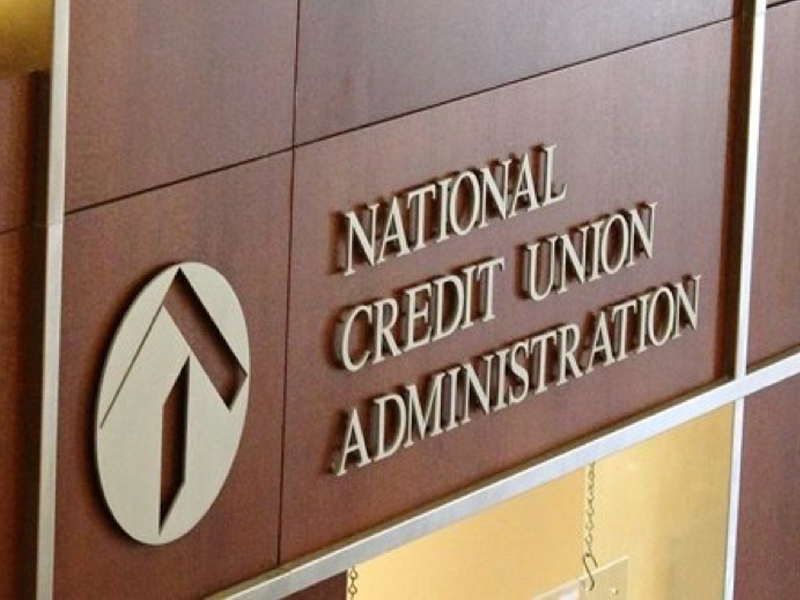Pushing Back on NCUA Call Report Change
Posted by John Trull on March 21, 2024

Whether the source be Congress, the NCUA, the CFPB, the Federal Reserve, or even the Executive Branch, GoWest recognizes that the volume and intensity of issues being proposed or actively advanced by policymakers collectively contributes to one of the most challenging operating environments credit unions have faced this century.
As your advocacy representative, GoWest is constantly working to identify, assess, and determine the most effective strategies to influence impactful issues – whether that be through direct lobbying, leveraging stakeholder relationships behind the scenes, inserting messaging into the court of public opinion, or even addressing legal remedies within the judicial system. Know that GoWest is consistently acting upon a wide range of remedies on your behalf.
Of particular concern is an NCUA decision to begin collecting overdraft and NSF fees on the Call Report for the upcoming reporting period. This action is significantly concerning and potentially harmful to the credit union movement and individual credit union members. GoWest is partnering with credit unions to actively address the new Call Report mandates, which were poorly communicated by the NCUA, and did not provide adequate lead time for implementation. GoWest’s efforts have been proactive, and multifaceted, including sharing significant frustration with the rollout, asking for reconsideration or a phased-in or voluntary period before enforcing a mandate, raising awareness, and preparing member credit unions for the changes and potential negative press.
The anticipated change in the NCUA’s reporting requirements is significant because the new data is expected to reveal that credit unions charge an average of between 50 and 100 times more for Overdraft Protection (ODP) fees compared to similarly sized banks. Make no mistake about it, overall bank fees continue to be higher than credit unions’, particularly as they derive significantly more income from credit card interchange, account fees, fees associated with commercial loans, fees related to closing costs, and more. However, the narrow focus of the new reporting requirement and a discrepancy in ODP fees could have implications for consumer perception, negative press, regulatory scrutiny, and the competitive landscape of financial institutions, in maintaining trust and loyalty among credit union members. While some credit unions have taken steps to reduce or eliminate overdraft fees and credit unions below $1B in assets will not be required to report these fees, there is still a reputational risk to the entire credit union movement, even though consumers choose this product and, in many cases, face grim alternatives should they lose access to overdraft protection.
In California, financial institutions are already required to file NSF and ODP as line items. The comparison is concerning; see the 2023 report:
- CA Annual Report of Income from Fees on NSF&ODP
- There has been negative media fallout as evidenced in a recent Consumer Reports article and another in Politico.
Credit unions must understand the importance of reporting Overdraft and NSF fees accurately on the call report making sure to back out any reimbursements of these fees from what is reported. We expect the spotlight on fees to continue not just from agencies, but GoWest also expects fee income to be a central issue during the 2024 Presidential Campaign.
We hear and share your frustration. The spotlight on fee income comes at a time when credit unions are navigating significant economic challenges, with rising interest rates dampening consumer confidence and borrowing. The cost of borrowing is climbing, squeezing margins on loans that sometimes do not compensate for the risk involved. Concurrently, inflation exacerbates members’ financial strain, affecting their capacity to afford essentials like housing, groceries, and energy which is also leading to increased delinquency. Moreover, operating costs for credit unions are on the rise due to inflation and tight labor markets. Liquidity issues have emerged as core deposits decrease, with savers seeking higher returns, on savings. Amidst economic headwinds and uncertain forecasts regarding interest rate cuts, the unspent funds from the infrastructure bill may further strain labor markets and interest rates, compounding these challenges. At the same time, the CFPB continues its attack on fee income and big retailers continue to call for reductions in interchange.
Credit unions must push back, and we are developing and implementing both immediate and near-term strategies to do so. Below is an outline of the steps we have taken related to the upcoming Call Report changes:
Immediate Engagement & Request for Reconsideration: GoWest immediately met with the Chairman’s Office and asked for reconsideration.
Advocacy Letter: Following discussions in GoWest state GACs, a letter was sent to Chairman Harper, signed by the co-chairs, advocating for a voluntary reporting period.
Raising Member Awareness: Informed credit union members about the new reporting requirements for overdraft and NSF fees and the potential fallout.
Engagement with ACU Leadership: GoWest brought this issue to the attention of ACU prior to the national Governmental Affairs Conference, requesting it be addressed in a previously scheduled meeting between Jim Nussle and Chairman Harper to discuss industry concerns and seek future improvements in communication about Call Report changes. This week, Troy Stang also led a strategy dialog with the League Presidents and ACU to explore all advocacy options. This work will continue through a number of AACUL advocacy committees that Jennifer Wagner, Ryan Fitzgerald, and I are actively engaged members of.
Preparation for Credit Union Communicators & Marketers: Equipped credit union communicators and marketers with strategies to handle potential impacts of the Call Report changes during a marketing council with additional follow-up to come.
Scheduling Strategic Meetings: Arranging a meeting between credit union leaders and NCUA senior staff, including Kelly Lay, Director of E&I, who is responsible for Call Report Changes, to again request a voluntary phase-in period along with discussions with each board office asking for a voluntary phase-in.
Targeted Advocacy with Key Congressional Members & Strategic Collaboration with North Carolina League: GoWest is working with the Carolinas League in asking Financial Services Chairman Patrick McHenry to make a congressional ask of the NCUA for a voluntary reporting period. We are also working to secure support from Senator Lummis and other members of the Senate Banking Committee to make the same request. Leveraging Congressional inquiries may also result in more transparency to the edicts of this administration, and to what should be independent agencies.
Continuous Strategy Development: Developing ongoing strategies to ensure credit unions are well-prepared for the changes.
Next Steps:
We continue targeted advocacy efforts in addressing the unexpected Call Report changes requiring credit unions to separately report overdraft (ODP) and NSF fees. Without prior communication from the NCUA or sufficient preparation time for credit unions, NCUA should make the report voluntary.
Additionally, we have initiated discussions and will be making additional requests of key members of Congress to push back on the NCUA in the weeks ahead. We will reach out to our members that have relationships in specific areas.
This new reporting requirement is part of a much larger, more intense effort to increase regulatory oversight and restrict financial products and services, putting credit unions in the same box as the largest national banks.
Credit unions’ advocacy efforts must evolve, both on offense and defense, in order to protect the not-for-profit charter option for consumer. To that end, we are pushing back against regulations that will limit credit unions’ ability to serve consumers and inadvertently push them to the largest banks and predatory institutions.
Posted in Advocacy on the Move, Federal Advocacy, Regulatory Advocacy.





















